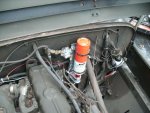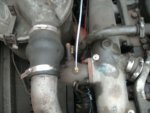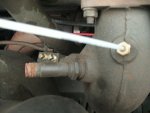I'm sure you know this but wasnt sure by the quote, but Di-electric grease is meant to use on the rubber connector to prevent arcing, its not a conductive grease so dont use it on electrical contact points or you may make a situation worse. I think many people assume its meant for contacts, but that isnt the case. Are you sure that the spark plug wire is good? Could it be cracked and making connection when you remove it to test but not so when you have it installed?
I agree with you partially. Di-electric grease
is electrically insulating, and is usually used for spark-plug boots and other similar rubber type connections, for ease of installation and to seal the connection.
However, Di-Electric grease can also be used on almost any electrical connection where corrosion is a problem/factor. One of the other names you see di-electric grease sold under is "bulb grease", most commonly found in auto-part stores. When used in a light bulb socket, it keep moisture out, prevents corrosion, and also helps when removing the bulb for replacement.
A situation where you don't want to use di-electric grease is on a connection which has a low pressure contact surface. If the connection is not secure or if the contact surfaces are easily 'dis-connected' then the grease could cause a connection problem.
But I have found that on most connections, di-electric grease helps a lot to prevent corrosion and to maintain good contact by sealing out water and other weather conditions.
This is especially true with trailer wiring, which is usually low to the ground and has little protection.
I've used dielectric grease on most of the connections that I have went through on this deuce. And with almost all the connections being the military rubber boot type plugs, it helps to fully seat the connection easier.
Just my







